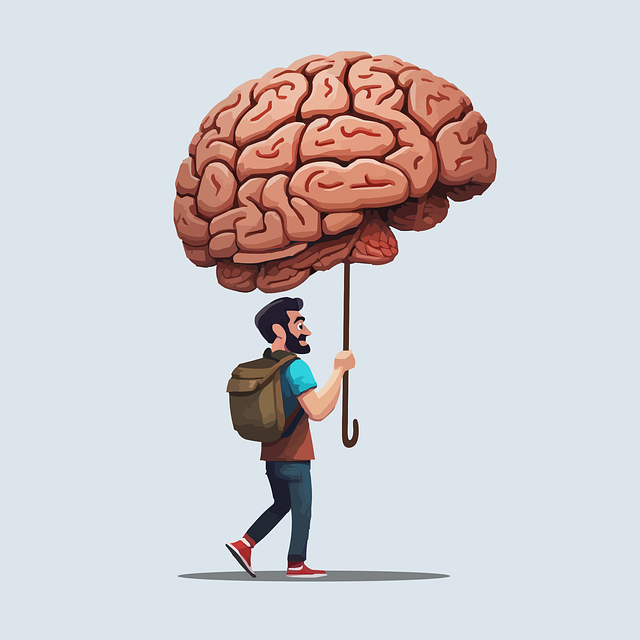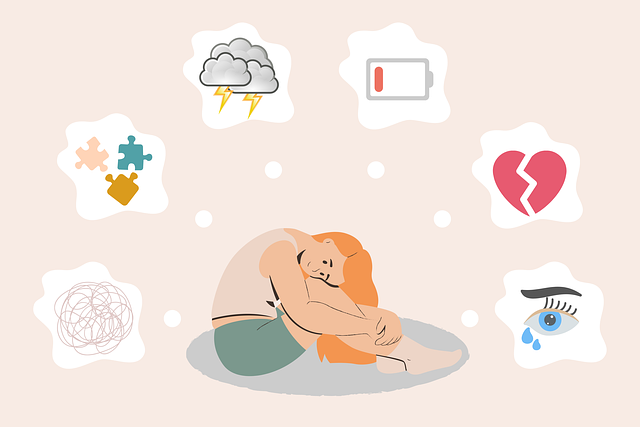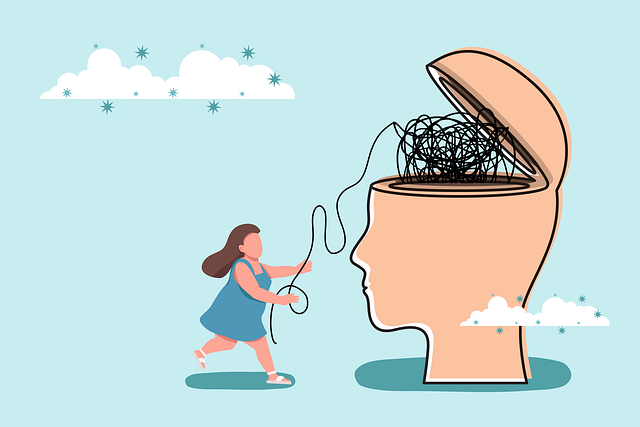Therapy for Adults with Bipolar Disorder is a multi-faceted approach combining evidence-based practices like CBT and interpersonal/social rhythm therapy to manage extreme mood swings. Compassion cultivation, healthcare provider training, mental health advocacy groups, community outreach, and crisis intervention in primary care enhance support systems, reduce stigma, and improve outcomes. Integrating tailored therapeutic approaches, patient-centered care, and mental health literacy promotes resilience and overall well-being for individuals living with bipolar disorder.
Mental health advocacy initiatives play a pivotal role in raising awareness, reducing stigma, and promoting support for individuals living with bipolar disorder. This comprehensive guide delves into understanding bipolar disorder, exploring the transformative power of therapy for adults, and highlighting advocacy efforts that enhance access to effective treatment. From educating communities to fostering supportive environments, these strategies aim to improve the lives of those affected by bipolar disorder. Key focus areas include evidence-based therapy approaches tailored for adults with bipolar disorder.
- Understanding Bipolar Disorder: A Comprehensive Overview
- The Role of Therapy in Managing Bipolar Disorder
- Advocacy Efforts for Mental Health Awareness and Support
- Strategies to Enhance Access to Adult Bipolar Disorder Treatment
Understanding Bipolar Disorder: A Comprehensive Overview

Bipolar Disorder is a complex mental health condition characterized by extreme mood swings, ranging from manic episodes to depressive periods. It’s essential to understand that this isn’t simply being happy one moment and sad the next; it involves intense emotional shifts that can significantly impact daily life. During manic phases, individuals may experience heightened energy levels, rapid thinking, and impulsive behaviors. Conversely, depressive episodes are marked by feelings of sadness, hopelessness, and a loss of interest in activities once enjoyed. This cyclical nature of symptoms can be challenging to manage.
Therapy for Adults with Bipolar Disorder focuses on mood management strategies tailored to each individual’s unique experiences. Techniques such as cognitive-behavioral therapy (CBT) help patients identify and change negative thought patterns, while interpersonal and social rhythm therapy aims to stabilize daily routines and improve relationships. Moreover, compassion cultivation practices and healthcare provider cultural competency training have been shown to enhance support systems and treatment outcomes, fostering a more compassionate and inclusive environment for those navigating this enigma.
The Role of Therapy in Managing Bipolar Disorder

Therapy plays a pivotal role in managing Bipolar Disorder, offering adults suffering from this mental health condition essential tools for coping and recovery. It provides a safe space for individuals to explore their emotional experiences, understand triggers, and develop strategies to stabilize moods. Through various therapeutic approaches tailored to their needs, patients can learn to recognize patterns of manic and depressive episodes, enabling them to proactively manage symptoms.
For adults with Bipolar Disorder, therapy isn’t just about treating episodes; it’s a long-term commitment to burnout prevention strategies for healthcare providers and enhancing mental illness stigma reduction efforts. Healthcare provider cultural competency training ensures that therapists are equipped to offer sensitive support, understanding the unique challenges faced by their patients. By integrating evidence-based practices alongside patient-centered care, therapy becomes a powerful ally in navigating this complex condition, ultimately fostering resilience and improving overall well-being.
Advocacy Efforts for Mental Health Awareness and Support

Mental health advocacy initiatives play a pivotal role in fostering awareness and breaking down stigma surrounding mental illnesses like bipolar disorder. Organizations and dedicated individuals are spearheading various efforts to ensure adults struggling with this condition receive the necessary support. One significant approach is through therapy, specifically tailored for adult bipolar disorder patients, offering specialized care and coping strategies. These therapeutic interventions not only help individuals manage their symptoms but also equip them with essential life skills.
Additionally, advocacy groups are implementing community outreach programs and social skills training to create supportive networks. By organizing workshops and awareness campaigns, they educate the public about bipolar disorder and promote early intervention. Conflict resolution techniques are also integrated into these programs, empowering those affected and their loved ones to navigate challenges effectively. Such initiatives ensure that mental health support becomes more accessible and inclusive, ultimately enhancing the overall well-being of individuals dealing with bipolar disorder.
Strategies to Enhance Access to Adult Bipolar Disorder Treatment

Accessing quality treatment for adult bipolar disorder is a significant challenge, but there are strategies to improve this. One key approach involves integrating crisis intervention guidance into primary care settings. By educating general practitioners about bipolar disorder symptoms and the importance of early intervention, more individuals can receive timely support during manic or depressive episodes. This could prevent severe episodes and reduce the need for emergency room visits.
Additionally, promoting mental health literacy and adopting evidence-based practices like Depression Prevention initiatives can be beneficial. Encouraging open conversations about bipolar disorder normalizes seeking help and fosters a supportive environment. Mind Over Matter principles, focusing on cognitive behavioral therapy and stress management techniques, empower individuals to manage their symptoms effectively. These strategies collectively work towards destigmatizing mental health concerns and ensuring adults with bipolar disorder receive the necessary Therapy for Adults Bipolar Disorder.
Mental health advocacy plays a pivotal role in breaking down stigmas and enhancing support systems, especially for those living with bipolar disorder. By raising awareness through initiatives that focus on education and accessible treatment, we can ensure individuals receive the necessary therapy for adults with bipolar disorder. Combining comprehensive understanding, effective therapy approaches, and improved access to care creates an environment where those affected can lead fulfilling lives. It is through collective efforts that we can navigate the challenges of bipolar disorder and foster a more supportive society.














